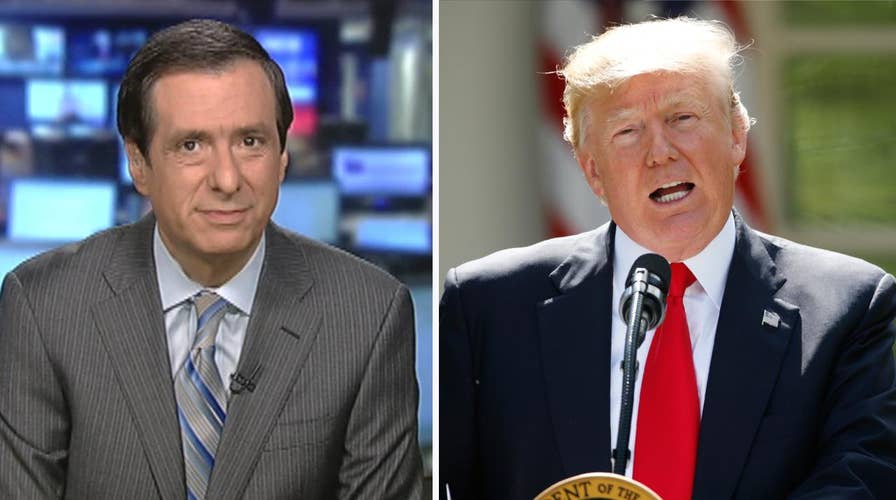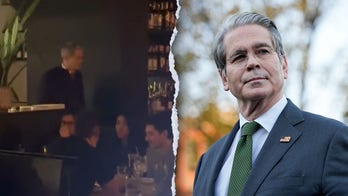Kurtz: The leaking Of Trump's climate move
'MediaBuzz' host Howard Kurtz weighs in on President Trump's decision to pull out from the Paris Climate Agreement
It was a very Trumpian announcement yesterday in the Rose Garden.
The president said flatly that he will pull out of the Paris climate change agreement, but quickly added that the U.S. will “begin negotiations to reenter” the pact or work out a new deal.
I had suspected, given the way the White House gradually leaked the story, that Trump had some surprise planned , given the big buildup to the live television event. Trump even said he would work with Democratic leaders to “immediately” negotiate our way “back into Paris.”
So as he complained about how the agreement “handicaps” our economy by fostering a “massive redistribution of wealth” from America to other countries, the president sort of has only one foot out the door. He did something similar after threatening to pull out of NAFTA, although in this case he’ll actually exit first.
And by the way, although major corporate interests opposed the move, this is Trump keeping a campaign promise.
Trump’s decision was always going to be controversial, given the broad array of interests and a faction within the White House that urged him not to bail on the deal.
But there’s little question that the mainstream media, with varying degrees of subtlety or boldness, were already lined up to treat this a terrible decision.
That goes beyond the screamer in the liberal Huffington Post: “TRUMP TO PLANET: DROP DEAD.”
For no other reason that America now joins Syria and Nicaragua as the only countries not part of the climate agreement, this fits the media narrative that Trump is isolating the nation from the rest of the world.
And the media usually tilt toward arguments by environmentalists rather than those who argue about lost jobs. But the industrial heartland, which includes part of Trump’s base, most acutely feels the impact of anti-pollution rules.
As word leaked to the press that Trump was “expected” to pull out of the Paris deal, the media consensus was clear.
A Washington Post piece yesterday morning called it “a move that would honor a campaign vow but risk rupturing global alliances and disappointing both environmentalists and corporate titans.” And it “could have severe ramifications internationally. It could raise doubts about the commitment of the world’s largest economy to curbing global warming and make it more difficult to hold other nations to their environmental commitments.”
A New York Times news analysis yesterday morning was headlined, “Can Climate Pact Survive If History’s Top Polluter Leaves?” And the story took a definite stance:
“A decision to walk away from the accord would be a momentous setback, in practical and political terms, for the effort to address climate change.” That would make it “much harder to achieve the agreement’s already difficult goal of limiting global warming to a manageable level,” and means the U.S. “would give up a leadership role when it comes to finding solutions for climate change.”
Pro tip: When press accounts warn of dire consequences and faltering American leadership, it means the media aren’t wild about the idea.
The leaks and counter-leaks were also fascinating. The Times covered its bets, for instance, by saying that “three administration officials with direct knowledge of the intense White House debate said early Wednesday morning that Mr. Trump was expected to withdraw,” but “other White House insiders disputed those reports, saying that no verdict had been reached.”
The initial accounts focused mainly on the “exit” part of Trump’s decision, and played down the renegotiating part. The Post, for instance, said in its second paragraph that critics “decried the U.S. exit from the Paris accord as an irresponsible abdication of American leadership.”
We’ll have to see whether the media machine shifts into a different gear in light of the president’s more complicated explanation.

























